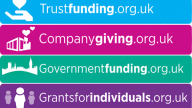In the news last week...
Weekly roundup of sector news from the DSC research team.
Is trust in charities really at its ‘lowest level since 2005’?
Last week, a report conducted by the Charity Commission (Trust in Charities 2018), found that the level of trust in charities is at its lowest since the commission started recording public trust levels in 2005. A summary of the findings are as follows:
- The average level of trust in charities is ‘5.5 out of 10’; lower than the ‘5.7 out of 10’ two years ago
- The average level of trust in charities was ‘6.6 or 6.7 out of 10’ between 2008 and 2014 before falling to ‘5.7’ in 2016, which the report says was down to controversies surrounding Kids Company, Age UK and, more recently, Oxfam
- The proportion of people who said their trust in charities had fallen over the past two years has grown dramatically since 2014 from 18 % to 45 % this year. It was 33% in 2016, researchers found
- Researchers found that, on average, charities were trusted less than a “man/woman on the street”, which scored ‘5.7 out of 10’ (MPs scored lowest out of the 11 categories in the poll, with an average trust score of 3.6 out of 10)
- Younger people were far more likely to trust charities than their older peers with 51% of 18 to 24-year-olds rating their trust in charities as 7 out of 10 or higher
- Researchers found that “transparent about where money goes” was the most important factor affecting their trust in charities
- A person’s trust in charities was found to be closely associated with their donating behaviour
The Commission said this is “unsatisfactory” and outlined its intention to rebuild public trust in partnership with the sector. However, the research also contained some encouraging findings such as the majority of people (58%) thinking charities play an ‘essential’ or ‘very important’ role in society today. Charities are also still more trusted than many other sectors and institutions. Vicky Browning, Acevo’s chief exec, said the Commission’s own research highlights that many respondents were not thinking of “local charities, cultural institutions or educational organisations, effectively meaning they were responding to questions with a very small proportion of the sector in mind”.
In Civil Society News, Kirsty Weakley unpicks the results of the research and notes how the timing of the research could have played a part in the low score this year. Research was conducted just two weeks after the Oxfam scandal hit, in the same way that research in 2016 took place in the wake of the Kids Company and fundraising scandals.
Sleep-in back pay for carers will not have to be paid
On Friday, the Court of Appeal ruled that social care organisations, including many charities, will not have to pay hundreds of millions of pounds of back pay to sleep-in care workers.
